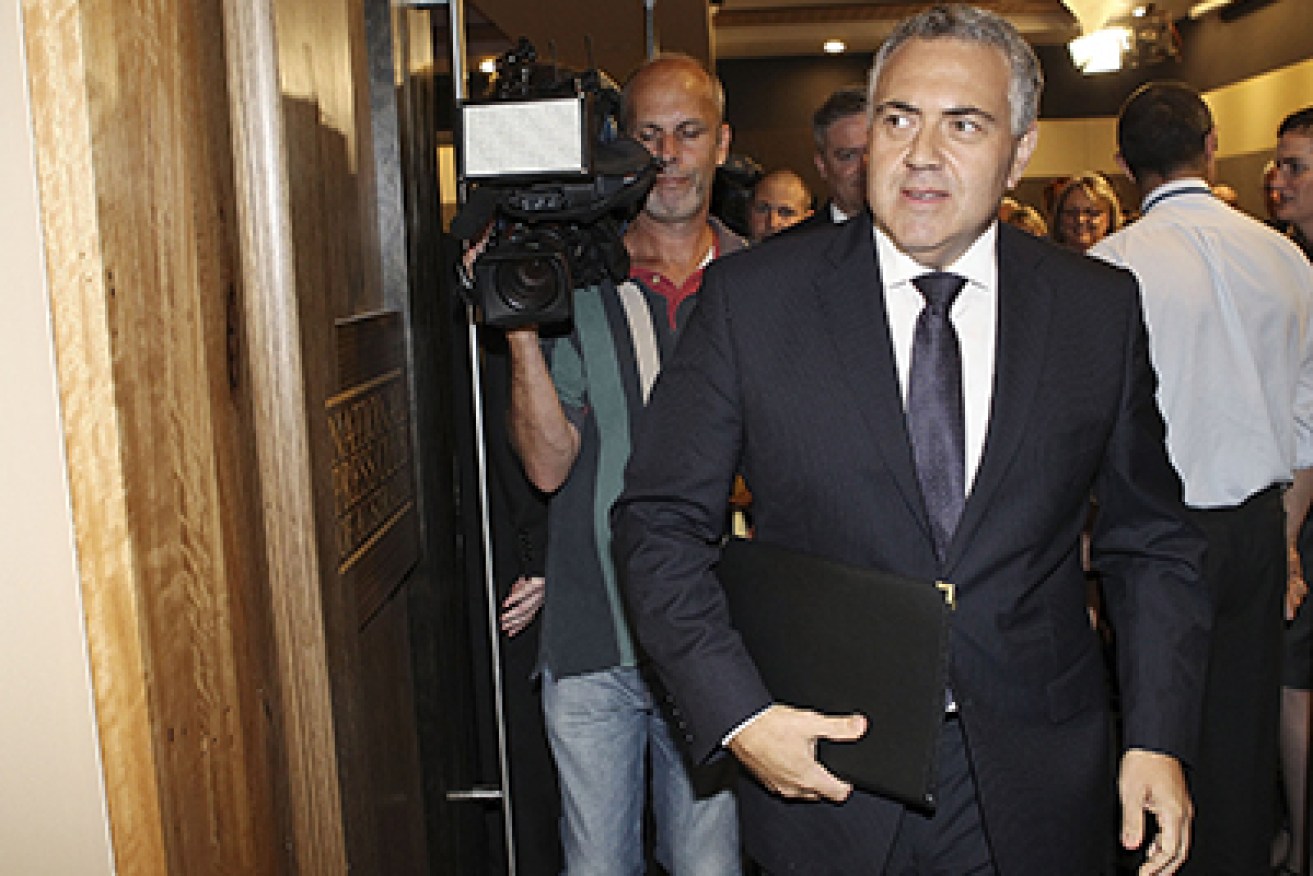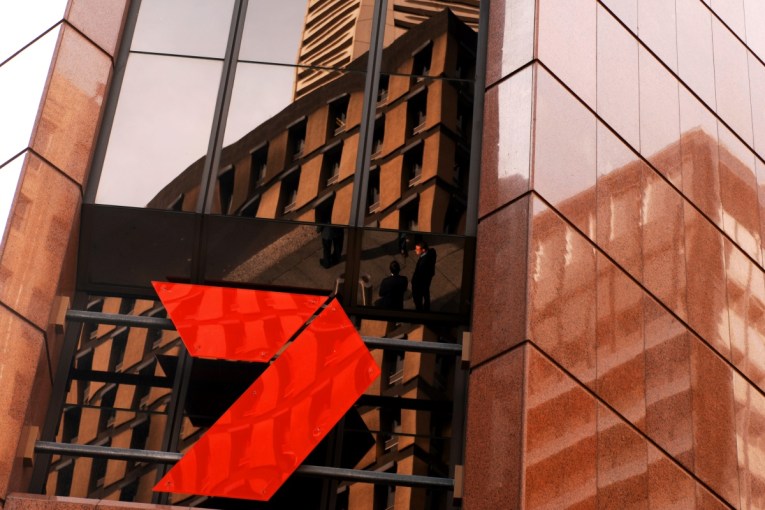The budget unmasked: A view from the inside


AAP
Next week the budget will come at last. Speculation will give way to certainty. Shadow-boxing will be replaced by all-out war.
By now most of the decision-making is over. For the past few months, and more frequently over the last few weeks, Ministers have met in a long thin room across the corridor from the Prime Minister’s office, clustering around an oval table to make hundreds of decisions about how the nation’s depleted finances are to be divided among a waiting populace.
Sometimes these meetings are collegial. More often than not, contested agendas simmer beneath gallows humour as ministers who are supposed to be on the same side make their pitches for money, praying they are more convincing than their colleagues. The sharpest conflict, though concealed, is often between the Prime Minister and the Treasurer: Peter Costello would hide the budget numbers from John Howard, determined to maintain his advantage until the last possible moment.

Peter Costello and John Howard. Photo: AAP
Strategic leaks
It is a season for strategic leaks. Most of these are planned, as government press secretaries in possession of finally calibrated spreadsheets systematically divvy up the news they want out before election day: to soften the ground for tough decisions, to draw attention to good news that will otherwise go unnoticed, sometimes for the simple reason that they have promised the journalistic gods a sacrifice and need to make good on their contract.
The morning after finds politicians rushing along the Press Gallery corridors from interview to interview, Benny Hill style.
Different governments pursue different strategies. The late Howard Government singled out a few favourites. It became an annual rite. It got so you knew where to look, which columns to read for the inside running. The early Rudd Government took another path, trying to share things out equally so as to keep everyone on side, the United Nations of media management. And it worked – for a while.
In accordance with the principle that between f*ck-up and conspiracy there is always a close contest, many of these leaks are unplanned, too, though the difference can be hard to spot. Many journalists assumed The Sunday Telegraph’s recent report of a deficit tax was a gift doled out by a government eager to float a test balloon. The journalist, Samantha Maiden, who has always been able to break her own news, insisted it was a hard-won story, honestly come by: in other words, the government did not want it out. Ministers will leak selfishly: to pin responsibility on someone else, to convince their colleagues to drop an idea, or to drive attention elsewhere. Political reporter Laurie Oakes was once given fifteen minutes to absorb the entire budget in a hotel carpark, dictating what he could into a tape recorder, a leak still believed by some to have come from then Prime Minister Malcolm Fraser in an attempt to divert press focus from a government split over Cambodia.
Skirmishes break out, as MPs vie for a slice of the limelight at a time of febrile media attention. This year we have seen mass unrest on the Liberal side over reports of a deficit tax, division on a scale that prompts a friend to ask me whether the past few years of Labor gunfights have changed the temperature of politics in this country forever. I tell him I hope not.

Joe Hockey. Photo: AAP
The big day
On the day itself much of Canberra vanishes into the budget lock-up. Reporters, interest groups and public servants are voluntarily imprisoned in a labyrinth made up of bland rooms with harsh lighting. They have a long night’s drinking to look forward to, but for the next hours they will hunker down sober to make sense of a frequently nonsensical document.
The budget, hundreds of pages long, will have shrunk to the size of a single talking point, debated ferociously by each side.
The atmosphere is one of competitive camaraderie. It is a day that editors and journalists earn their pay, interrogating shifting numbers and arriving at firm conclusions with no hope of outside help. Decisions are locked in, cartoonists asked to reflect their editors’ views with mocking caricatures that will stare out, the size of a front page, from thousands of newsagent windows the next day. In essence, every national newspaper is, for one day a year, prepared from within the confines of Parliament House.
With the Treasurer striding the halls of the lock-up, hoping to convince journalists of his genius, and the budget just hours away, the Prime Minister is left to dominate the least-watched Question Time of the year, providing an answer to the timeless question “If a tree falls in a forest and no one is around to hear it, does it make a sound?” (The answer is no.) Inside the lock-up, the Treasurer will give a press conference, the only one all year you can guarantee every senior political journalist will attend. And yet it is overtaken a few hours later when the Treasurer stands, nervously, to his feet, to deliver the one political speech ordinary Australians actually tune in to hear.
Technology means the government no longer has to wait for the next day to get its verdict. News websites go live the moment the Budget speech begins. The night is a bonanza for Canberra takeaway restaurants: government and opposition staffers alike will be in their offices for hours, absorbing reactions, collecting quotes from the lobby groups forming an orderly line in the press gallery to make their views known to the cameras. In the bars, hours later, happy reporters will surreptitiously show ministers their iPhone images of the next day’s front pages.
The breaking morning finds politicians rushing along the Press Gallery corridors from interview to interview, Benny Hill style. It is very likely Tony Abbott and Bill Shorten will run into each other. Each will try to avoid a Latham-style handshake disaster. The PM and his Treasurer will have memorised detailed briefs, settled responses to slippery questions, but by 7am the budget will have boiled down to three points of controversy at most. By midday two of those are likely to have slipped away. The budget, hundreds of pages long, will have shrunk to the size of a single talking point, debated ferociously by each side.
The moment the budget is delivered is the moment newspapers begin the battle to get their pollsters in the field first. It is an absurd spectacle, one that has become worse in recent years, and likely to tell nobody anything of any use. Journalists might write of the absence of a hoped-for “budget bounce”, knowing full well there is no such thing: rarely does a budget have any significant impact on short or medium-term polling. The largest exception, which should have the current Prime Minister concerned, was 1993, when Paul Keating walked away from his L-A-W tax cuts and felt the people of Australia walk across his political grave.
Gone, and nearly forgotten
A few days later the budget will be all but forgotten. The challenge for both sides then becomes how to keep it alive via virtuous fight: the legislative battle that one side tries to foist upon the other. The government cannot, of course, control what will be blocked. This stage is the very definition of the wisdom that every battle plan fails to survive first contact with the enemy.
For most budgets, that will be it. A government’s first is different. It is not only about the budget, but about the image the government has of itself, that it hopes others will adopt. It is not just about the short term, in other words, but about the longer run hope that with this event the government will convince an uncertain nation that they are up to the job.
Politics seems often to be a hundred things, all happening at once. In a three-year term, few will be remembered. After the strategic leaks are forgotten, the planning spreadsheets shredded, the front pages burned or recycled or simply thrown away, it is hard to know, yet, what of this budget will still be with us at the next election – if anything at all.
Sean Kelly was an adviser to Kevin Rudd from 2009 then to Julia Gillard from 2010. He is on Twitter: @mrseankelly








